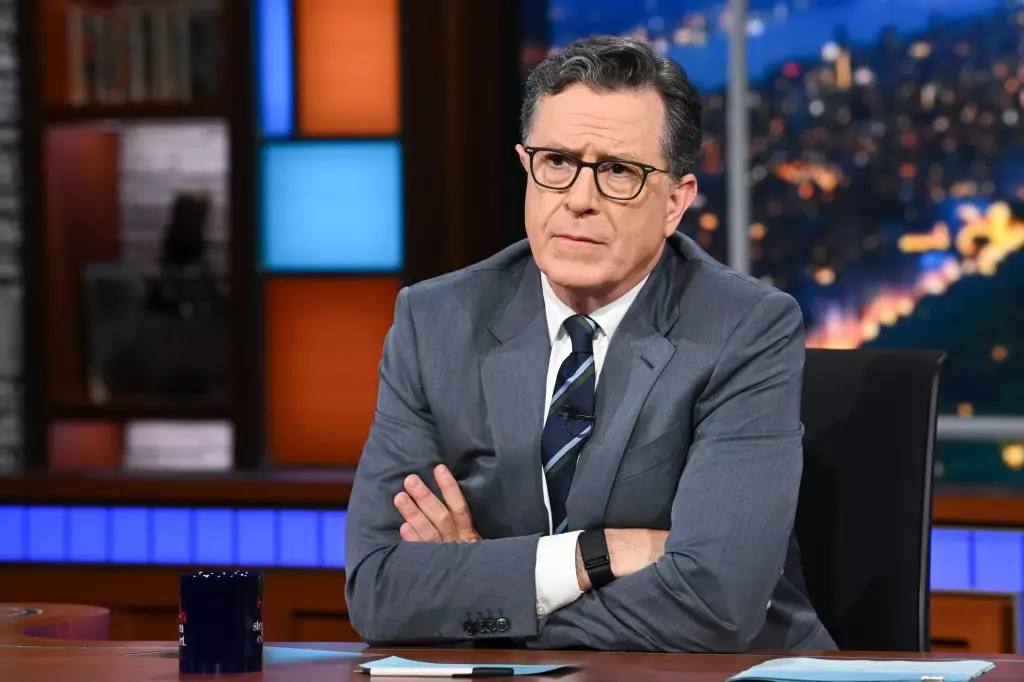In an era where political correctness often silence dissenting voices, comedy remains a vital tool for defending freedom of expression. When Stephen Colbert publicly defended Jimmy Kimmel amidst mounting censorship, he demonstrated how satire is not merely entertainment but a form of resilience against authoritarian tendencies masked as moral guardianship. By mocking Disney’s decision to pull Jimmy Kimmel Live!, Colbert underscored that comedy can act as a form of resistance, challenging those who seek to silence views they disagree with. His pointed critique of FCC Chair Brendan Carr’s remarks about community values reveals an underlying truth: the heart of free speech lies in safeguarding diverse perspectives, even when they ruffle feathers or provoke discomfort.
Colbert’s remarks go beyond humor; they serve as a rallying cry for the preservation of open discourse. His reference to Alexander Hamilton humorously elevates the significance of free speech, reminding us that the foundational principles of democratic societies hinge on the ability to speak freely without fear of censorship. In a climate where political factions and corporate interests clash over what can or cannot be said in the media, satire becomes a vital instrument to expose hypocrisy and defend individual liberty. This act of defiance emphasizes that humor isn’t just a way to entertain but a strategic weapon against suppression.
From Canceled Shows to Cultural Confrontation
The recent suspension of Jimmy Kimmel Live! signals a deeper crisis within the landscape of media and free expression. When ABC decided to preempt the show, citing controversy over Kimmel’s remarks about a tragic incident involving Charlie Kirk, it revealed how sensitive and fragile the boundaries of acceptable speech have become. The FCC’s condemnation and the swift reaction from local stations demonstrated how powerful words can be weaponized to curtail honest discussion. Yet, Colbert’s sharp humor exposes the absurdity of viewing satire as “sick conduct,” instead framing it as a vital part of a healthy democracy.
The fact that Disney’s suspension coincided with audience outrage underscores the influence corporate interests have when they align with political pressures. Social media debates, protests, and media commentary all intertwine to create an environment where comedians are increasingly held accountable—and often punished—for speaking truth to power. Colbert’s willingness to openly criticize this trend showcases the importance of artistically pushing back against societal censorship. Comedy roles in this tumultuous debate are monumental: it’s a mirror reflecting societal flaws, a magnifying glass exposing hypocrisy, and a lance piercing the armor of authoritarian overreach.
Resilience of the Comedic Spirit Amid Political Turmoil
Colbert’s own experiences, having faced cancellation of his show earlier this year, lend a personal dimension to his stance. His public acknowledgment of feeling a renewed love for his country reveals an underlying belief: that defending free speech is an act of patriotism. Despite institutional pressures and attempts to silence dissent, Colbert emphasizes that humor is an act of bravery—an assertion that humorists are often at the forefront of societal change. His victory at the Emmy Awards and his subsequent call to “stay strong” serve as a reminder that artistic freedom and resilience can triumph over attempts at suppression.
The camaraderie among late-night hosts, exemplified through their collective efforts during the writers’ strike and their public solidarity, further illustrates that humor is more than individual expression—it is a communal act for societal betterment. Their collective voice becomes a form of cultural resistance, reinforcing the notion that comedy remains a vital battleground for the defense of democratic ideals.
As society navigates increasingly polarized waters, the role of satire is more relevant than ever. It challenges the status quo, questions authority, and fosters an environment where alternative voices can thrive. Colbert’s unwavering stance is a testament to the power of humor not just to entertain but to energize a citizenry committed to preserving their freedoms. In turbulent times, laughter isn’t just a distraction; it’s the armor that shields the essence of free speech and democratic values.

